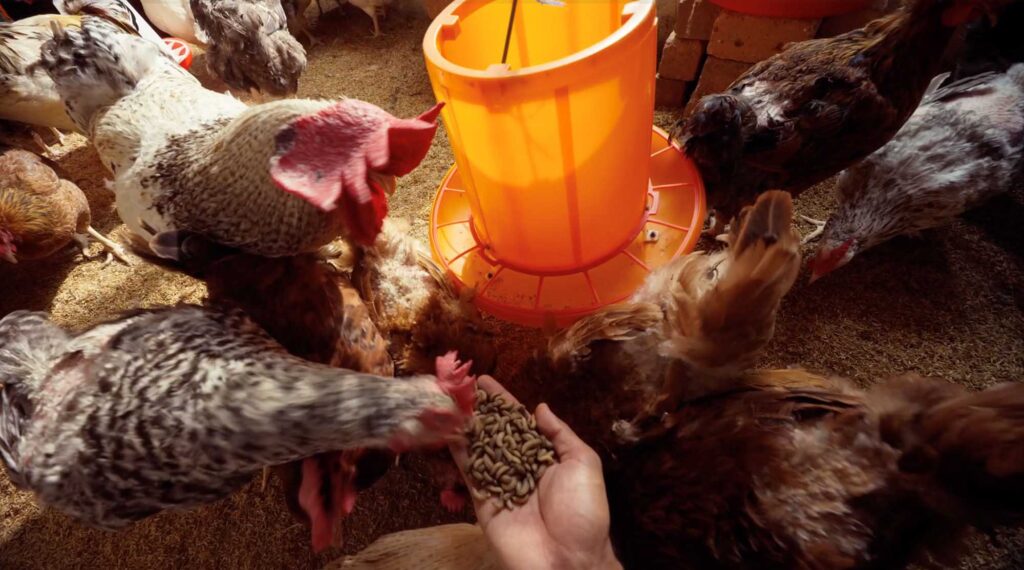Small-scale farming of black soldier flies can help Madagascar tackle three of the country’s most serious problems: food insecurity, deforestation and climate change. The new SIANI expert group Insect-based Proteins works to spread the practice to more smallholder farmers on the island.
The idea behind the expert group stems from work the Madagascar Biodiversity Center is doing on insects, a promising resource to increase agricultural productivity and incomes of local farmers. This can in turn help safeguard Madagascar’s rich but threatened biodiversity.
The SIANI expert group will explore how smallholder farmers can use insect farming in novel ways to improve nutrition and livelihoods. We asked the group’s coordinator Harifetra Jiharo, from the Madagascar Biodiversity Center, to tell us more.
What is your project about?
Our initiative focuses on small-scale insect farming as a sustainable, climate-smart agricultural practice. This approach aims to enhance the livelihoods of rural communities by providing an affordable source of high-quality protein for local consumption. Additionally, it produces an organic fertilizer byproduct (frass) that improves garden yields. Through the SIANI expert group, we bring together local and international experts from diverse fields to accelerate the adoption of insect farming, refine best practices, and measure its impact on communities.
Who are the members of the expert group?
The expert group comprises of local Black Soldier Fly (BSF) farmers who contribute innovative farming techniques, international specialists in assessing the socio-ecological impacts of BSF farming, and fertilizer scientists who evaluate the application of frass as an organic fertilizer.
What type of change can the project achieve?
The project will integrate local innovations into BSF farming manuals, develop socio-ecological monitoring protocols to assess impacts on rural communities, document these outcomes through video, and support the formation of BSF farmer associations.
These efforts aim to position insect farming as a transformative, community-centred solution to improve food security, reduce malnutrition, conserve biodiversity, and decrease reliance on forests. Ultimately, this will lead to better health, socio-economic well-being, resilience, and environmental sustainability.
Which activities do you plan?
The group will organize expert meetings to refine the BSF training manual, address adoption challenges, evaluate the benefits of BSF farming for Madagascar, and document the local impact of BSF farmers, including the use of frass in agriculture. The findings will be shared through instructional videos and locally adapted manuals.
Why is this important?
Over the past decade, food insecurity in Madagascar has surged dramatically. With 90% of the population living on less than $1.60 per day, Malagasy communities are on the frontlines of the global climate crisis. Traditional farming methods yield low agricultural outputs, leaving rural households struggling to meet daily needs. Women and youth with limited resources are particularly vulnerable. Nationwide, over 7.4 million rural residents face chronic shortages of protein, iron, folate, and Vitamin B12, with up to half suffering from protein and iron deficiency anemia (USAID, 2018). Additionally, one in three children under five is stunted (UNICEF).
Addressing malnutrition requires increasing access to affordable, nutritious food through enhanced local production. However, solutions are limited: degraded grasslands cannot support more livestock, and further deforestation for agriculture is unsustainable, with only 10% of forests remaining. Insect farming emerges as one of the few viable, sustainable, and climate-smart options that can be implemented by women and youth in local communities.
How can I learn more about insect-based proteins and your project?
There are plenty of resources on the website of the Madagascar Biodiversity Center, including a series of videos. We will also continuously share new insights through SIANI’s communication channels.
